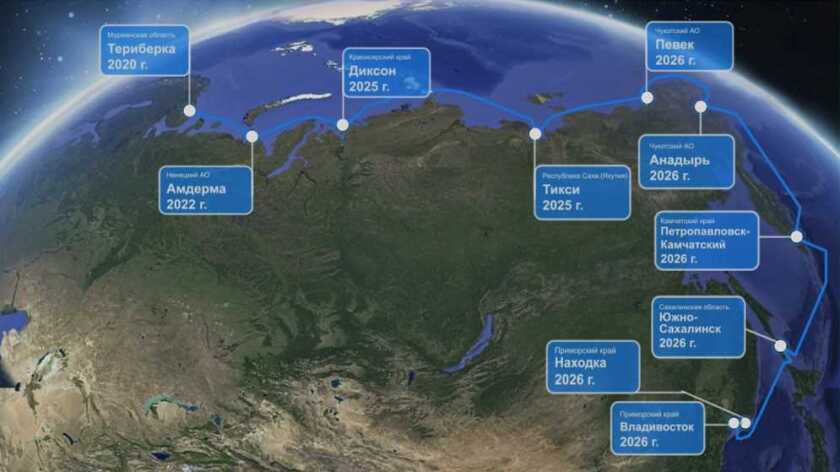According to the Reuters, the new system connecting Europe and Asia through the Arctic zone of Russia, is a state-run project aimed at delivering high-speed internet to its 'remote hydrocarbon-rich north'.
The project is being developed by the Ministry of Transport of the Russian Federation; the Federal Agency for Maritime and River Transport (Rosmorrechflot); and Federal State Unitary Enterprise (FSUE) also known as Rosmorport. The cable will be operated by state-owned company Morsviazsputnik.
Due to go live in 2026, the 12,650km system will boast six pairs of optical fibres offering roughly 52 -104 Tbps of capacity and connect at cable landing stations along Russia's northern coast between the village of Teriberka in Kolsky District of Murmansk, on the Barents Sea, to the eastern port city of Vladivostok.
Speaking to Reuters, Alexei Strelchenko CEO of Advanced Technologies Management, the cable-manufacturing and laying company, confirmed that the cable will cost 65 billion roubles ($889 million) and be exclusively financed by the state.
In addition, manufacturing of the cable took place in Murmansk using Chinese optical fibre and Russian components, added Strelchenko and a ship departed Murmansk on Thursday 5 August 2021, to begin installation near Teriberka.
Andrey Kuropyatnikov, CEO of Morsviazsputnik says that the system will require additional cable interconnections in order to link to existing cable systems for further onward connective, all of which will require foreign investment for which conversations are already under way.
"That (will entail) partnership in terms of co-investment to expand the project to Europe and Asia. This is a separate commercial project," he told Reuters.
The news follows reports of stalled plans for the previously announced Arctic Connect, subsea cable.
In June it was confirmed that the project which was being developed by Russian telco Megafon and Finnish infrastructure operator, Cinia is now being ‘revised’ with no official word on whether it will still go ahead in the future.
Speaking to Russian news agency, Interfax, sources at MegaFon said: “We have decided to reconsider the structure and economy of project Arctic Connect and we need time for such a reorganisation …"
Many have speculated that the fall out is due to failed negotiations with the project’s Japanese partner Sojitz Corporation that failed to provide co-financing as per the cooperation agreement.
A source close to the Polar Express system told Reuters that Megafon quit due to competition with the state-run project as well as technical difficulties that effected the commercial viability of the project.
Another source told Reuter's that Megafon had unable to get Russian-state approval for the Arctic Conect project, on national security grounds, a claim that MegaFon refutes saying it has all the neccersary approvals and is taking the time to review the "structure and economy" of the project.






